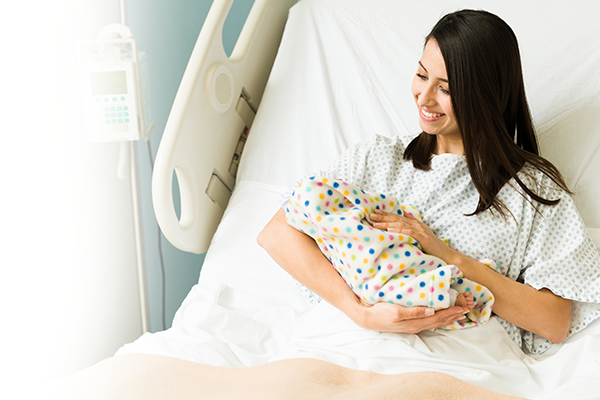A urine test during pregnancy is one of the basic laboratory tests that are mandatory for every mother-to-be. A pregnant woman should report to them once a month. It allows early detection of conditions that are dangerous to the health of the developing fetus.
A pregnant woman is particularly vulnerable to developing urinary tract infections. This is because of the short urethra and its close proximity to the anus. Pregnancy hormones also play a big role, causing the smooth muscles in the urinary tract to relax, making it easier for germs to enter the body. In addition, the ever-expanding uterus presses on the ureters and bladder, so that urinary stasis often occurs. Urinary tract infection is very often asymptomatic, which is why regular urine testing during pregnancy is so important. Only through it can abnormalities be detected and appropriate treatment implemented.
What is a urine test in pregnancy?
Urine testing in pregnancy is non-invasive and completely painless. It provides a lot of information about the health of the mother-to-be. It involves collecting a small amount of urine in a special container and delivering it to a laboratory, where it is carefully analyzed. Its color, clarity, specific gravity and pH are evaluated. Blood, protein, glucose, ketone bodies and microorganisms can also be detected.
A general urine test in pregnancy is very important because it allows you to diagnose a urinary tract infection. It is a disease that is dangerous to the health of the woman and the developing fetus, and in most cases does not produce any symptoms. If left untreated, it leads to inflammation and kidney failure, miscarriage or premature birth.
Urine testing during pregnancy – when should it be done?
Urine testing during pregnancy is mandatory. Every mother-to-be should perform them once a month and whenever there are alarming symptoms that indicate urinary tract disease (lower abdominal pain, pain in the kidney area, burning during urination, painful urge to urinate on the bladder). A referral for a general urine test in pregnancy is issued by a gynecologist or primary care physician.
How to prepare for a urine test during pregnancy?
Every mother-to-be should know how to prepare for a urine test during pregnancy and how to perform it correctly so that the result comes out reliable. The first step is to get a suitable container for the urine sample. It can be obtained from a laboratory or purchased at any pharmacy. Do not use a jar or other vessel, because sometimes there are bacteria in it, and this will falsify the result.
Principles of collecting urine for general examination:
- Wash your hands and intimate area before collecting urine;
- Urine for testing is best taken first thing in the morning;
- Urine should be collected from the middle stream. This means that you have to urinate a few milliliters into the toilet, then put the container under and direct the stream into it;
- The urine container must be secured and delivered to the laboratory within 2 hours.
Urine testing in pregnancy – results and norms
The results of a urine test in pregnancy are usually available the same day. They should always be seen by a doctor, who will assess whether there are any deviations from the norm that require treatment. It is considered abnormal when bacteria, fungi, white or red blood cells, protein, glucose or ketone bodies are present in the urine.
Urine testing standards in pregnancy:
- Color: light yellow, straw-colored;
- pH: 4.8-7.4;
- specific gravity: 1.005-1.030;
- clarity: transparent;
- urobilinogen: absent;
- erythrocytes: 3-5 in the field of view (wpw);
- leukocytes: 4-5 wpw.
It is worth remembering that the result of a urine test during pregnancy may show the presence of a small amount of glucose. This is normal in pregnant women and is not indicative of diabetes. If in doubt, the doctor will order additional tests.
See also: Non-invasive and invasive prenatal testing in pregnancy.
Rate this article:









